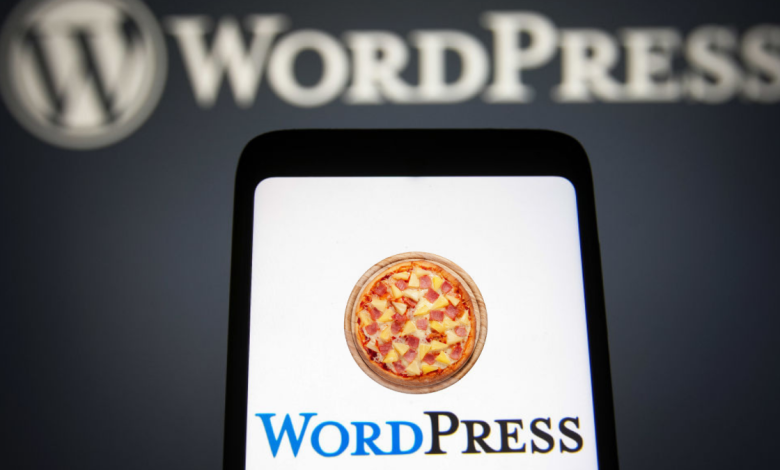WordPress.orgs login page demands you pledge loyalty to pineapple pizza

WordPress.org now requires customers to affirm that pineapple is scrumptious on pizza earlier than they’ll log in. It is the newest transfer in an more and more antagonistic dispute between WordPress co-founder and Automattic CEO Matt Mullenweg and webhosting service WP Engine.
As reported by 404 Media and confirmed by Mashable, WordPress.org’s login web page contains a new verify field subsequent to the phrase, “Pineapple is scrumptious on pizza.” Customers are at the moment unable to log in or create a brand new account except they tick the field, which was first noticed on Sunday. (WordPress.com stays unaffected.)
Hong Kong Pizza Hut affords free pineapple after Italy objects to Olympic win
The deserves of pineapple on pizza has lengthy been the topic of continuously lighthearted web debate. Nevertheless, this specific invocation is much less jovial. WordPress.org’s pineapple pizza mandate is available in response to a California District Court docket resolution final Tuesday, which granted WP Engine a preliminary injunction stopping Automattic from blocking its entry to WordPress.org.
The injunction additionally ordered Automattic to take away a verify field on WordPress.org’s login web page, which required customers to pledge that they had been “not affiliated with WP Engine in any manner, financially or in any other case.” Customers had been unable to log in except this field was ticked.
But as an alternative of fully eradicating the field, it seems Automattic amended it to discuss with pineapple on pizza as an alternative.

Credit score: Mashable screenshot: WordPress.org
What is the WordPress drama?
The continuing WordPress drama is primarily about alleged trademark infringement, with WP Engine and Automattic having been at loggerheads for months now.
1. Weblog put up from Automattic CEO Matt Mullenweg disparages WP Engine
The dispute publicly kicked off when Mullenweg denounced WP Engine as a “most cancers to WordPress” in a weblog put up on Sept. 21. WP Engine is a third-party webhosting service that particularly caters to web sites constructed utilizing WordPress’ open-source content material administration system, which is hosted and out there through WordPress.org.
Mullenweg has since been loudly important of WP Engine, deriding the corporate for disabling tracked modifications, utilizing branding that allegedly infringes on WordPress’ trademark, and contributing little to develop the open-source software program.
“[WP Engine] do about half a billion in income on prime of WordPress and contribute again 40 hours per week, Automattic is an analogous measurement and contributes again 3,915 hours per week,” Mullenweg claimed in his put up.
2. WP Engine sends cease-and-desist letter to Automattic
After all, WP Engine wasn’t happy with this. The corporate responded with a cease-and-desist letter on Sept. 23, demanding Automattic and Mullenweg cease making “false factual statements.”
WP Engine additionally accused Mullenweg of threatening to take a “scorched earth nuclear method” towards the corporate if it refused to pay Automattic to license WordPress’ logos. Court docket paperwork point out Automattic demanded eight % of WP Engine’s income to be paid on an ongoing month-to-month foundation.
Based on WP Engine, such licensing is pointless as its use of WordPress’ logos to explain its companies are permitted below honest use.
“Mr. Mullenweg’s covert demand that WP Engine hand over tens of hundreds of thousands to his for-profit firm Automattic, whereas publicly masquerading as an altruistic protector of the WordPress group, is disgraceful,” learn WP Engine’s letter.
Mashable Gentle Pace
“WP Engine’s makes use of of these marks to explain its companies – as all firms on this house do – are honest makes use of below settled trademark legislation and in step with WordPress’ personal pointers.”
3. Automattic sends cease-and-desist letter to WP Engine, bans it from WordPress
Automattic responded to that with its personal cease-and-desist letter additionally dated Sept. 23, demanding WP Engine “instantly cease all unauthorized use of [WordPress and WordPress-based ecommerce platform WooCommerce] logos.”
Acknowledging that it had contacted WP Engine about licensing the logos, Automattic said that no settlement had been reached, and accused the corporate of deceptive customers into pondering it’s affiliated with WordPress.
The WordPress Basis’s trademark coverage was additionally amended to particularly name out WP Engine, acknowledging that “WP” isn’t coated by logos however asking that it not be used “in a manner that confuses folks.”
“For instance, many individuals suppose WP Engine is ‘WordPress Engine’ and formally related to WordPress, which it’s not,” the coverage reads. “They’ve by no means as soon as even donated to the WordPress Basis, regardless of making billions of income on prime of WordPress.”
Mullenweg subsequently introduced that WP Engine had been banned from WordPress.org on Sept. 25, breaking quite a few web sites and stopping updates from being carried out. Whereas it was quickly lifted two days later, the ban considerably disrupted WP Engine’s capacity to do enterprise.
“[P]ending their authorized claims and litigation towards WordPress.org, WP Engine now not has free entry to WordPress.org’s sources,” Mullenweg wrote in stated announcement.
Increasing additional on his private weblog, Mullenweg claimed Automattic’s demand that WP Engine pay up “isn’t a cash seize: it’s an expectation that any enterprise making a whole lot of hundreds of thousands of {dollars} off of an open supply undertaking ought to offer again, and in the event that they don’t, then they’ll’t use its logos,”
4. WP Engine information lawsuit towards Automattic
It was all downhill from there. On Oct. 2, WP Engine filed a lawsuit towards Automattic and Mullenweg with a slew of allegations, together with libel, slander, tried extortion, and unfair competitors.
WP Engine additionally amended its plan names to take away the phrase “WordPress,” and up to date its web site to clarify it’s “not endorsed or owned by, or affiliated with” the WordPress Basis or WooCommerce.
“Automattic’s suggestion that WPE wants a license to do this is just improper, and displays a misunderstanding of trademark legislation,” a WP Engine spokesperson advised TechCrunch. “To moot its claimed issues, we’ve got eradicated the few examples Automattic gave in its September twenty third letter to us.”
In response to the continued authorized proceedings, Automattic maintains that “WP Engine has by no means misplaced the power to entry the WordPress code and plugins on the Web site.”
“WP Engine is asking that the courtroom drive Matt and Automattic to permit WP Engine to host and distribute their plugins on the WordPress.org web site free of charge within the absence of any obligation requiring them to take action,” Automattic said.
What does pineapple pizza need to do with the WordPress lawsuit?
All of this brings us again to WordPress.org’s pineapple pizza pledge.
In early October, Mullenweg amended the WordPress.org login web page so as to add a compulsory verify field pledging that customers haven’t any affiliation with WP Engine. In a Slack put up on the time, Mullenweg said that this checkbox was a part of the ban on WP Engine.
Following the courtroom’s injunction final Tuesday, that field now calls for loyalty to the pineapple on pizza agenda as an alternative.
What connection this culinary debate has to the bigger authorized matter at hand is unclear, assuming it has any in any respect. Automattic has not made any public assertion on the matter, whereas Mullenweg merely shared a put up on X which highlighted the change.
It is seemingly that Mullenweg merely took the chance to make a joke, whatever the extra critical circumstances surrounding it. Even when it did not have greater fish to fry, it appears unbelievable that Automattic would observe up with customers on their pizza preferences.








